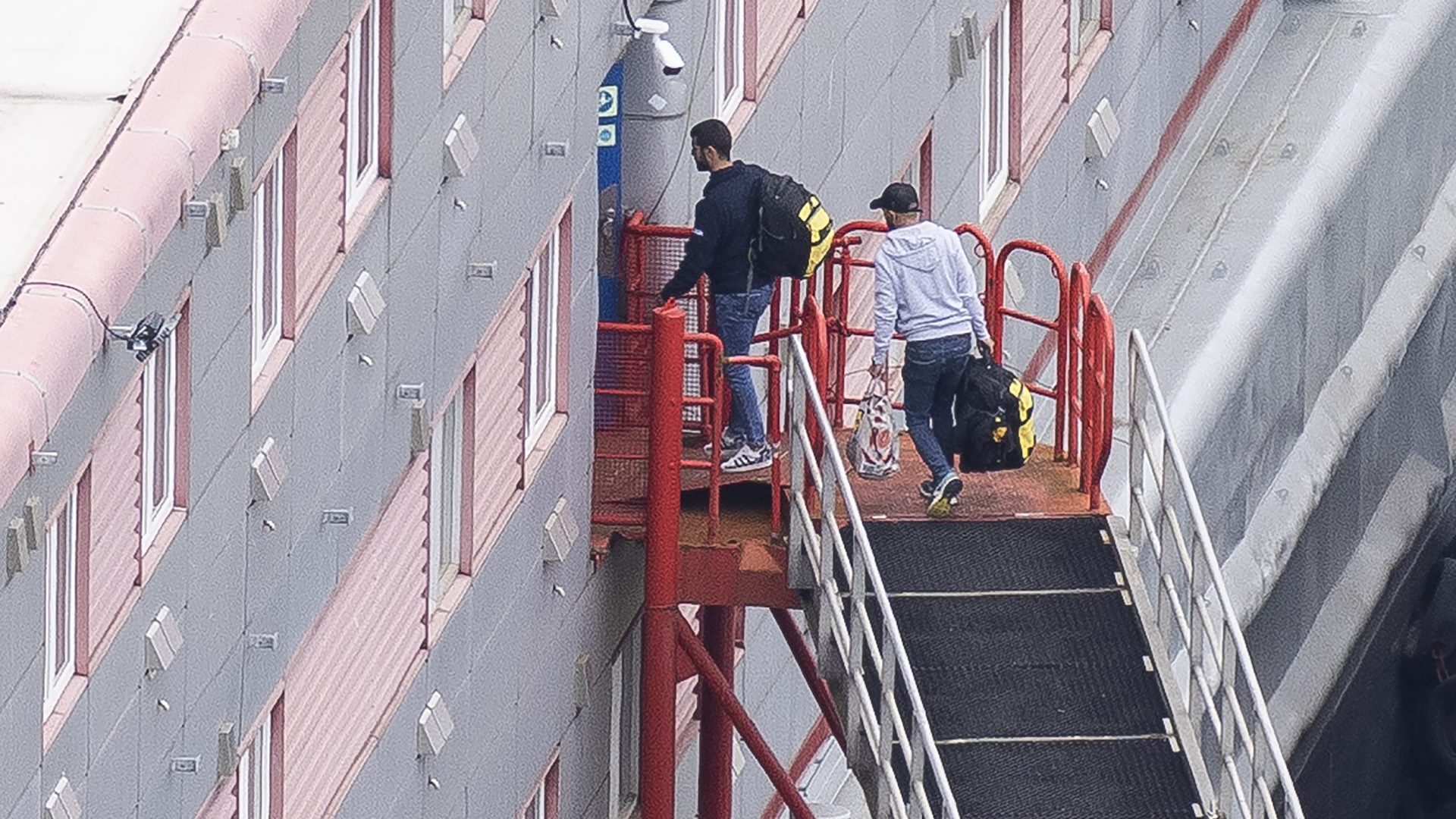The first 15 asylum seekers have now boarded the government’s controversial Bibby Stockholm barge. Yet, experts are now calling into question the effectiveness of the policy, claiming that it will not prevent asylum seekers from crossing the channel or solve the asylum accommodation crisis.
“The government claim it will act as a deterrent to asylum seekers considering coming to the UK. The implication is that somehow asylum seekers can access extensive information about living conditions in advance of leaving their country of origin, when that information is simply not available,” says Professor Jenny Phillimore, who teaches migration and superdiversity at the University of Birmingham.
That directly contrasts with Rishi Sunak’s assertion earlier this year – echoed by Home Office minister Sarah Dines this week – that barge accommodation rather than hotels would have a deterrent effect on the numbers of people attempting to reach the UK, thereby matching up with the PM’s pledge to “stop the boats”.
Phillimore also said that while Sunak’s government assumes that alternatives to hotel accommodation are the only way of saving money when housing migrants, non-governmental organisations including Reclaim the Seas and One Life to Live estimate that savings will be a maximum of £10 per person per day.
“The long-term costs of using this kind of accommodation are likely to be extensive in human terms. It means essentially imprisoning extremely traumatised individuals for months or years, which causes harm to health and wellbeing, from which the asylum seekers may never recover,” she adds.
She added that while hotel accommodation for migrants is portrayed as a “luxury” in some sections of the British press, a study by Doctors of the World and work by Refugee Action and the Refugee Council showed that asylum seekers in reality face poor living conditions inside these hotels.
For Phillimore, the hotel accommodation cost crisis is one of the government’s own making and the solution lies in speeding up processing times while exploring work options for asylum seekers, allowing them to contribute to their own costs.
Moreover, she believes that using barges will not address the scale of asylum seeker housing needed. “To rehouse the 50,000 asylum seekers living in hotels would require 100 barges and ports prepared to host them,” she said.
“In reality, the provision of such accommodation is just an empty and characteristically cruel gesture by a government that has failed in its duty to provide protection to some of the world’s most vulnerable people.”










